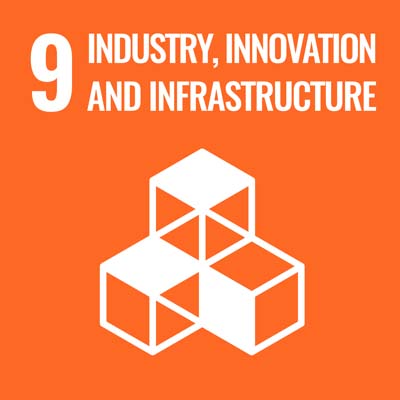Strengthen your engineering capabilities
The new Level 7 Apprenticeship Standard, the Postgraduate Engineer, offers industry the opportunity to develop their graduate on a highly-regarded postgraduate programme to develop their engineering competence, whilst actively taking forward your organisation’s capabilities.Overview
- Start dateMarch and November
- Duration24 months part-time
- QualificationPgDip
- CampusDependent on delivery mode
Programme details
The programme has been mapped against the Postgraduate Engineer Standard and has been developed for companies who want a full offering that delivers against all aspects of the Standard. Integral to the programme is the PgDip Engineering Competence, which is comprised of eight modules, and culminates in a group project to apply the module content to a real workplace situation.
Modules within the Postgraduate Diploma
- General management
- Design-driven innovation
- Product development
- Operations management
- Business process analysis and engineering
- Cost engineering
- Manufacturing systems engineering
- Project and programme management
- Group project
The award for each module is 10 credits with 40 credits awarded to the group project
Who is it for?
The programme is ideally suited for companies who want to accelerate the development, and improve retention of early career engineering management staff by enhancing their postgraduate development and training offering, using contributions to the Apprenticeship Levy. It is designed to support the organisation in achieving high quality capabilities as participants gain a blend of leading-edge engineering and management skills in an engineering context. It is a real benefit to companies who would like the complete process of the Apprenticeship to be managed and coordinated by Cranfield University.
The course has been developed in collaboration with industry and the Institute of Apprenticeships to meet the Level 7 Postgraduate Engineer Apprenticeship Standard.
Benefits to your learners
Your early career professionals will benefit from a postgraduate qualification and personal development opportunity with one of the UK’s top postgraduate universities, specialising in technology and management. The applied nature of the programme enables personalised, specific and organisationally aligned development.
They will be equipped to:
- Analyse business processes
- Identify opportunities for innovation
- Manage projects
- Develop new products
- Refine operations
- Deliver improved results.
University Disclaimer
Keeping our courses up-to-date and current requires constant innovation and change. The modules we offer reflect the needs of business and industry and the research interests of our staff and, as a result, may change or be withdrawn due to research developments, legislation changes or for a variety of other reasons. Changes may also be designed to improve the student learning experience or to respond to feedback from students, external examiners, accreditation bodies and industrial advisory panels.
Course details
Course modules
Project and Programme Management
| Aim |
|
|---|---|
| Syllabus |
• PM Tools and Techniques. • IT Project Management. • Introduction to PRINCE 2. • Introduction to Managing Successful Programmes. • Project Readiness. • Organisation and People issues. • Project Complexity and Risk. • Project Management simulation. |
| Intended learning outcomes |
On successful completion of this module you should be able to: 1. Distinguish the concepts of change, transformation, project, and programme and portfolio management. 2. Apply the basic project management methods. 3. Compare PRINCE2 and Managing Successful Programmes approaches. 4. Manage the dynamic uncertainty in project execution. 5. Construct a business change project plan using PRINCE2 approach and templates. |
Optimising Whole Life Cost and Performance Management
| Aim |
To introduce Cost Engineering principles, procedures and practices that will contribute to the development of affordable products and services with the focus on optimised whole life cost and performance. |
|---|---|
| Syllabus |
• CE principles, cost estimation and modelling techniques, CE process, whole life costing, Integrated Logistic Support (ILS) costing, cost of hardware development and manufacture, cost of through life support. • Dynamic cost modelling, Knowledge management for Cost Engineering, affordability engineering, risk analysis and uncertainty management, systems thinking for cost. • Holistic life cycle related CE case studies for improved business intelligence: Building awareness of software tools (e.g. TruePlanning, SEER-H). |
| Intended learning outcomes |
On successful completion of this module you should be able to: 1. Critically apply the key techniques for whole life costing and performance management. 2. Analyse cost estimates for robustness and identify performance measures for a complex engineering system. 3. Appraise and estimate the cost of different through-life scenarios, by evaluation of maintenance and whole life costs, while achieving required asset performance. 4. Evaluate the risk and uncertainties involved in cost and performance estimating. 5. Critically evaluate the terminologies and key concepts used in cost accounting. |
Operations Management
| Aim |
To introduce you to the core factors of managing operations and the concept of flow in operations. |
|---|---|
| Syllabus |
• An introduction to manufacturing organisations and functions. • The theory of operations, flow in manufacturing and what enables/inhibits it. • Order winners, Order qualifiers, and competitive priorities. • Key Performance Indicators in manufacturing. • Product/Process matrix, facility layouts, production strategies, product families. • Customer Demand and capacity planning, and standardization. • Process flow diagrams, and value stream maps. • S&OP, Master Production Scheduling, BOM, and scheduling rules. • Push vs Pull production. • Information systems; MRP, MPRll, ERP, and Kanban systems. • Maintenance management strategies. • Dimensions of Quality, Quality management frameworks, and the cost of quality. • Roles of inventory; inventory management systems and measures. • Lean Manufacturing. • Class discussion of cases, exercises, and videos to support this syllabus. |
| Intended learning outcomes |
On successful completion of this module you will be able to: 1. Discuss the importance of the operations functions of an organisation and how operations performance can impact the success of the whole organisation. 2. Assess production and capacity management strategies that can be deployed to meet customer demand for products and services. 3. Assess the importance of inventory, maintenance, and quality management systems in achieving high levels of operational performance. 4. Determine the role of information in planning, control, and scheduling, including the role of IT systems. 5. Critique the different attributes of the Lean Production System and how they apply to contemporary operational contexts. |
Manufacturing Systems Engineering
| Aim |
|
|---|---|
| Syllabus |
• Introduction to modelling: taxonomy, overview of methods and techniques. • Design of manufacturing layouts. • Manufacturing layout Manufacturing Systems modelling using discrete-event simulation, Systems dynamics and Agent-based simulation techniques and methodologies. • Case study Analysis of manufacturing systems using simulation. |
| Intended learning outcomes |
On successful completion of this module you should be able to: 1. Differentiate the applicability of different modelling approaches applicable in manufacturing businesses. 2. Assess how production layout and system design influence manufacturing system performance. 3. Design a graphical simulation model using an industry-leading discrete-event simulation tool to feed to the experimental testing procedure. 4. Appraise the effectiveness of manufacturing layout configurations. 5. Evaluate the potential benefits and limitations of using AI in the early design of manufacturing systems and integrating AI methods into various design scenarios. |
Lean Product Development
| Aim |
As a Master level course this module has to develop knowledge, critical scientific thinking and hands-on experiences for developing a product. A scholarly approach of product development, project management and evolution, as well as the use of the most suitable material and technology, are expected. Research appropriately into customer and market requirements and their analysis to translate the requirements into product specification. |
|---|---|
| Syllabus |
• Introduction to Product Development (PD). • Concurrent Engineering • PD Tools and Methods. • Lean Product Development • Set-Based Concurrent Engineering (SBCE). • SBCE Industrial Case Studies. • PD in Knowledge-based Environment. • Trade-Off Curves to enable SBCE. • Tutorial PD Project. |
| Intended learning outcomes |
On successful completion of this module you should be able to: 1. Assess the application of product development process in lean environment and addressing global collaboration. 2. Design a process of product development based on the principles of set-based concurrent engineering. 3. Formulate the process of selection of materials and manufacturing processes. 4. Appraise the application of tools and techniques to support product development such as QFD, DFM, DFA, and FMEA. 5. Create and manage product development knowledge to solving product design and development problems and to enable trade-off between design solutions. |
General Management
| Aim |
To give you an introduction to some of the key general management, personal management and project management skills needed to influence and implement change. |
|---|---|
| Syllabus |
Management Accounting Principles and Systems. Personal style and team contribution, interpersonal dynamics, leadership, human and cultural diversity. Project Management: structure and tools for project management. Introduction to standards: awareness of standards, relevant standards (quality, environment and H&S), value of using standards, management of the standard and audit. |
| Intended learning outcomes |
On successful completion of this module you will be able to:
|
Design Driven Innovation Processes
| Aim |
This module introduces the core concepts, systematic methods, and tools for design-driven innovation of product-service systems through group assignments. It emphasises formal treatment of product-service systems as well as systematic methods for exploring the design space creatively and exhaustively. Through exercises given during the module, the student will develop the ability to compare and compose appropriate building blocks for the delivery of value creation, and to build shared understandings for managing and implementing the innovation process effectively. The assignment topic will be given in collaboration with an industrial partner. |
|---|---|
| Syllabus |
• Innovation Overview. • Design thinking and design process modelling. • Lean Stratup Product-service systems. • Hoshin Kanri and Dare to Lean. • TRIZProblem-solving. |
| Intended learning outcomes |
On successful completion of this module you should be able to: 1. Assess the concept of innovation and create competitive advantage of product-service systems. 2. Design a process of Lean Strat-up for developing businesses, products and services. 3. Apply methods for systematic and exhaustive definition and exploration of the design space. 4. Evaluate different design solutions effectively and solve its problems. 5. Create strategy to define enterprise goals of their product-service system to be communicated throughout the company and then put into action. |
Business Process Analysis and Engineering
| Aim |
To develop your understanding and practice of business process analysis and engineering as a core competence in operations and change management, in the role of internal or external consultants. |
|---|---|
| Syllabus |
• Manufacturing and Services Processes. • Modelling and Charting Tools. • Lean and Six-sigma Processes. • Business Analysis and Improvement Workshop Techniques. • Re-engineering and Improvement Cases. |
| Intended learning outcomes |
On successful completion of this module you should be able to: 1. Relate the range of business processes in manufacturing and service sectors. 2. Construct business process model and charts. 3. Propose business process improvements using lean and six sigma approaches. 4. Plan and execute business problem analysis. 5. Plan and create business solution design. |
Teaching team
How to apply
Next steps
If you would like to find out more general information about the course and your eligibility to attend the programme, please arrange a one-to-one discussion with the course director before you make a formal application.
For employer related enquiries, fees and funding, and the expression of interest/application process, please contact our Apprenticeships Team: apprenticeships@cranfield.ac.uk
Employers: please complete our Expression of Interest form.
Prospective students: please ask your employer to submit an Expression of Interest form to indicate their willingness to sponsor you.
Applications for apprenticeship routes have to come via the Expression of Interest form. Apprenticeship applications received via the application button on the non-apprenticeship pages will not be processed.





